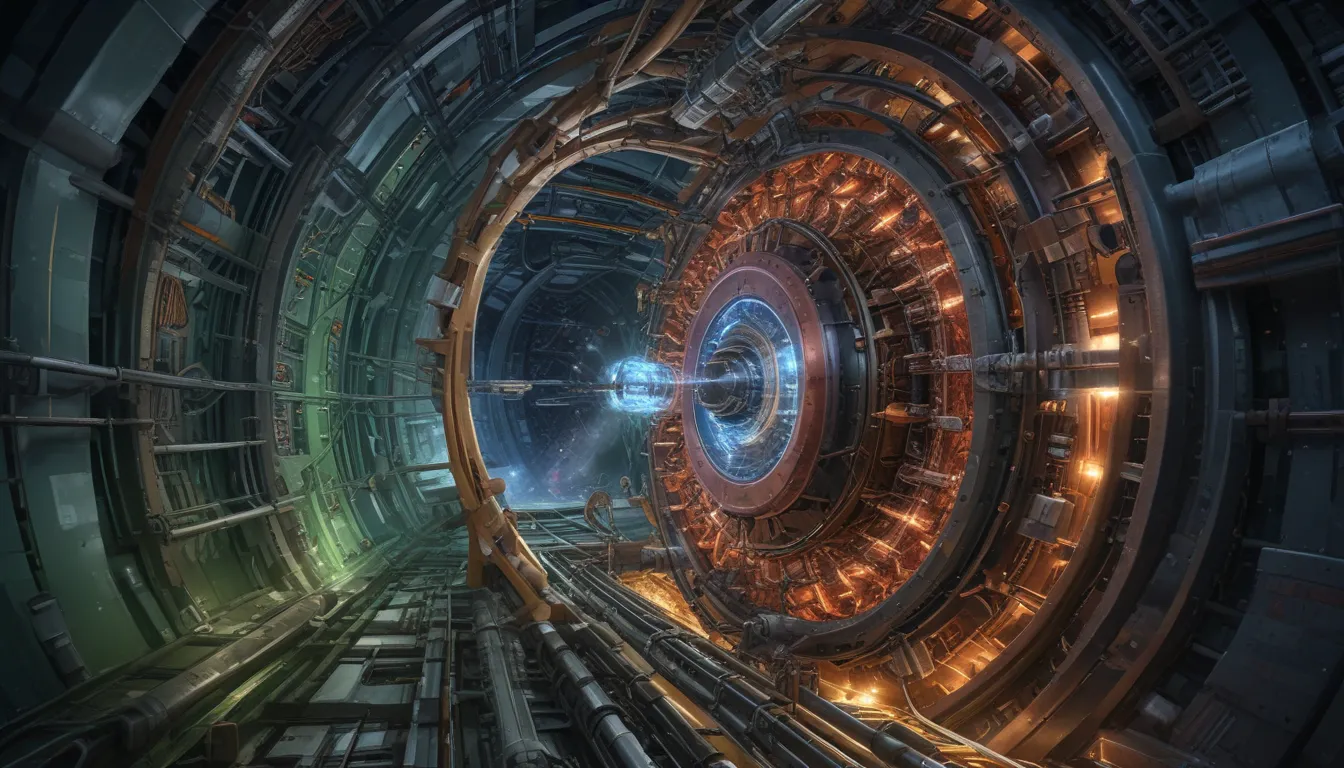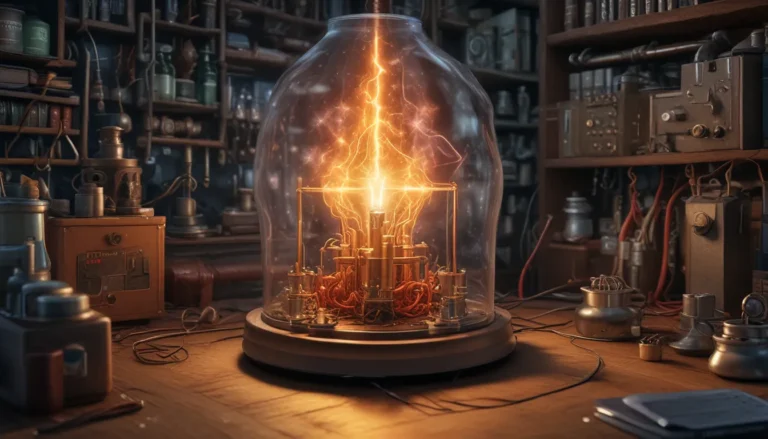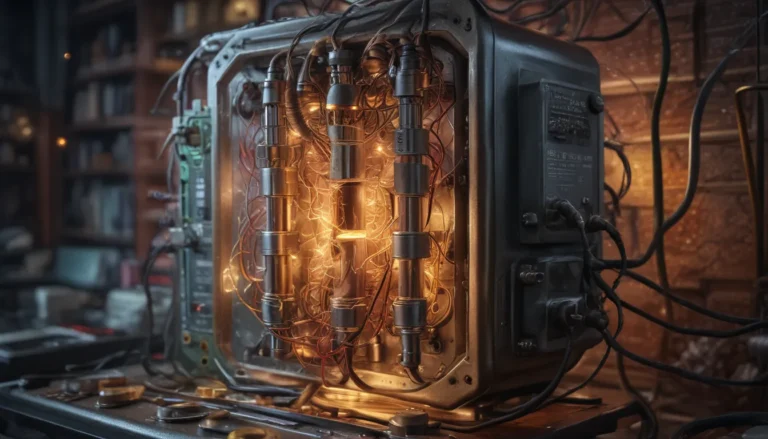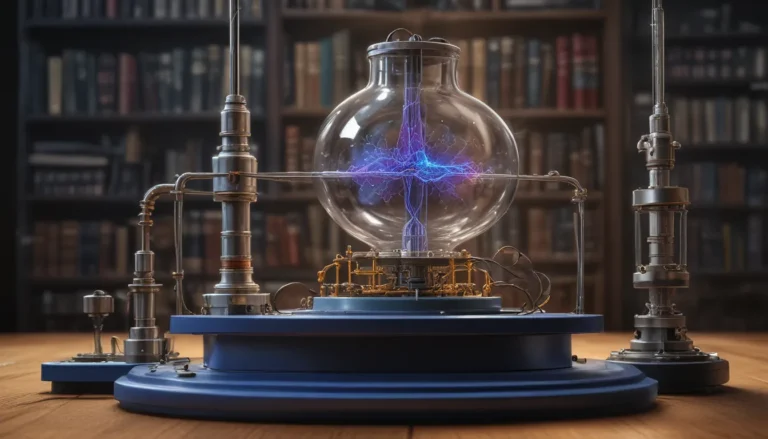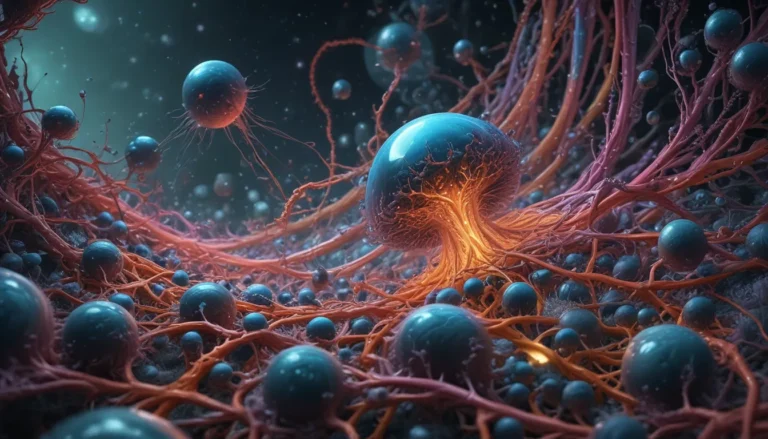A Note About Images: The images used in our articles are for illustration purposes only and may not exactly match the content. They are meant to engage readers, but the text should be relied upon for accurate information.
Particle accelerators are incredible machines that have transformed our understanding of the universe. These powerful devices push the boundaries of scientific exploration, allowing researchers to delve into the fundamental workings of reality. In this article, we will uncover nine unbelievable facts about particle accelerators that will leave you in awe of their capabilities. From their mind-boggling speeds to their groundbreaking discoveries, particle accelerators are truly marvels of modern science. So, get ready to be amazed as we take a closer look at these extraordinary machines.
Understanding Particle Accelerators
Particle accelerators are like super-fast highways for tiny particles, enabling scientists to study the smallest components of the universe and recreate conditions from the Big Bang. These machines play a crucial role in advancing medical treatments, material science, and inspiring global collaboration for groundbreaking discoveries in various scientific fields.
Particle Accelerators and Speed
Particle accelerators are remarkable in their ability to propel particles, such as protons or electrons, to incredible speeds approaching the speed of light. By using electromagnetic fields, these accelerators can manipulate particles, allowing researchers to study the fundamental properties of matter and unlock the secrets of the universe.
Exploring the Building Blocks of Matter
Through high-energy collisions, particle accelerators enable scientists to recreate the conditions that existed shortly after the Big Bang. This process helps researchers study fundamental particles like quarks and leptons, shedding light on the building blocks that make up our universe.
Transforming Medical Research and Treatment
The impact of particle accelerators extends beyond theoretical physics to revolutionize medical research and treatment. These machines are utilized in cancer therapy to deliver precise radiation beams to target tumors while minimizing damage to surrounding healthy tissues. Additionally, particle accelerators produce isotopes for medical imaging and therapy, aiding in the diagnosis and treatment of various diseases.
The Complexity of Particle Accelerators
Particle accelerators are not ordinary laboratory equipment; they are massive and intricate machines that can span several kilometers in length. Their operation requires precise engineering and extensive shielding to ensure safety. For example, the Large Hadron Collider (LHC) boasts a circumference of 27 kilometers, showcasing the scale and complexity of these devices.
Extreme Temperatures and Pressures
When particles collide within a particle accelerator, they generate immense amounts of energy, leading to extreme temperatures and pressures. These conditions mimic those found in the core of stars or during the early stages of the universe, allowing scientists to study matter under extreme circumstances and gain valuable insights into its behavior.
Unveiling New Particles
Particle accelerators have been instrumental in discovering previously unknown particles. The observation of the Higgs boson at the LHC in 2012 confirmed the existence of the Higgs field, providing critical insights into the origin of mass. These discoveries expand our understanding of the universe and its fundamental forces.
Advancements in Material Science and Technology
Particle accelerators play a pivotal role in material science and technology by enabling researchers to study and manipulate materials at the atomic level. This knowledge contributes to the development of new materials with enhanced properties, driving advancements in fields such as electronics, energy, and transportation.
Generating High-Energy X-Rays
Particle accelerators have the capability to produce high-energy X-rays, which are invaluable in various applications. These intense X-ray beams can analyze complex molecules like proteins, aiding in drug discovery and development. They also find industrial applications in quality control and nondestructive testing.
Inspiring Scientific Collaboration and Discovery
Particle accelerator facilities serve as hubs for global scientific collaboration, bringing together researchers from around the world to pursue groundbreaking discoveries. By working together to design, build, and operate these sophisticated machines, scientists push the boundaries of scientific knowledge, leading to breakthroughs in multiple scientific disciplines.
Conclusion
In conclusion, particle accelerators stand as incredible scientific instruments that have revolutionized our understanding of the universe. These machines accelerate particles to astounding speeds, allowing researchers to delve into the fundamental mysteries of the cosmos. From the monumental Large Hadron Collider to smaller accelerators used in research laboratories, particle accelerators have played a vital role in advancing our knowledge of physics.
Through these machines, scientists have made groundbreaking discoveries, confirmed the existence of fundamental particles, and explored the forces shaping our universe. Additionally, particle accelerators have contributed to advancements in medicine, materials science, and energy research. As technology continues to evolve, particle accelerators will continue to drive scientific exploration and lead to revolutionary discoveries with limitless potential applications and benefits.
FAQs
- What is a particle accelerator?
-
A particle accelerator is a scientific instrument used to accelerate charged particles, such as protons or electrons, to high speeds for the study of their properties and interactions.
-
How do particle accelerators work?
-
Particle accelerators function by creating and controlling intense electric and magnetic fields to accelerate particles as they traverse a series of accelerating structures.
-
What are particle accelerators used for?
-
Particle accelerators have diverse applications, including fundamental physics research, the discovery of new particles, medical treatments, material science investigations, and energy research.
-
What is the largest particle accelerator in the world?
-
The Large Hadron Collider (LHC) located at CERN in Switzerland currently holds the title of the largest and most powerful particle accelerator globally.
-
How are particle accelerators beneficial to society?
-
Particle accelerators bring numerous societal benefits by advancing our comprehension of the universe, supporting medical treatments like cancer therapy, and fostering technological innovations across various fields.
-
Are particle accelerators dangerous?
-
Particle accelerators are designed with extensive safety precautions, and the associated risks are minimal. Strict protocols ensure the safety of researchers and the environment.
-
Can particle accelerators create black holes?
-
No, particle accelerators lack the energy levels necessary to produce black holes.
-
How do particle accelerators contribute to energy research?
-
Particle accelerators aid in energy research by examining the behavior of high-energy particles and developing technologies for energy production, such as advanced nuclear reactor fuels.
-
Are there future advancements expected in particle accelerator technology?
- Ongoing research and development efforts aim to enhance particle accelerator technology, potentially leading to more accessible and cost-effective designs in the future.
Join the Journey of Discovery
The realm of physics holds endless wonders waiting to be explored. Conservation of momentum and the innovative design of cyclotrons provide further insights into the intricate world of particle physics. For a deeper dive into the forefront of scientific exploration, the Large Hadron Collider unveils the universe’s fundamental secrets. Embark on this captivating journey through the fascinating world of physics and particle accelerators with us.
Embrace the Wonder of Science
Our dedication to delivering reliable and engaging content is the driving force behind our work. Each fact on our site is contributed by individuals like you, bringing a wealth of diverse insights and information. To ensure utmost accuracy and credibility, our devoted editors meticulously review each submission. Trust in our commitment to quality and authenticity as you delve into the world of science and exploration with us.
